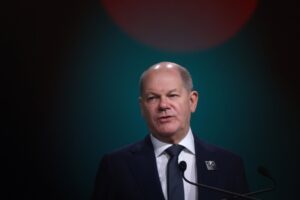Astana, Kazakhstan (10/11 – 60).
The upcoming Kazakhstan presidential election will not only vote for the new head of the state and pave the way to the democracy in the country but also determine the Kazakhstan’s economy reforms for the next seven years. As the world enters 2023 with threats of global recession and economy uncertainty, the Kazakhstan presidential election, which will be held on Nov. 20, may favor incumbent President Kassym-Jomart Tokayev.
International organizations such as International Monetary Fund (IMF) and World Bank have released predictions on a possibility of the 2023 economic recession, which was caused by rising inflation and interest rates in the Western countries, such as US and UK. Meanwhile, economic activity in the Middle East and Central Asia was resilient with recovery continuing in 2022 but the region must guard against growing global headwinds and push ahead with reforms, the International Monetary Fund said.
The recession issue emerges a few months before the Kazakhstan presidential nomination period closed on Oct. 11. The Central Election Commission has verified six candidates to qualify for the election. It has so far registered 6 candidates, the incumbent President Tokayev, Zhiguli Dairabayev, Meiram Kazhyken, Nurlan Auesbayev, and two women candidates, Karakat Abden and Saltanat Tursynbekova.
Of the six candidates, President Tokayev, who was nominated by the people’s coalition, leads in the signature collection with a total of 399,809 signatures from citizens, almost three times more than required. Besides gaining the most citizens’ signatures, President Tokayev has also received support from three political parties respresented in the lower house of Kazakh parliament, the Mazhilis.
Following him on the second position is Kazhyken, a doctor of economic science and professor nominated by the Amanat Commonwealth of Trade Unions, collected 122,184 signatures. Dairabayev, a candidate from the Auyl (village) party, gained 119,975 signatures, while Ausbayev from National Social Democratic Party collected 119,197 signatures. The first woman candidate Abden, nominated by the National Alliance of Professional Social Workers, collected 118,418 signatures, while Tursynbekova, a candidate of Qazaq Analary – Dasturge Zhol public association secured 118,434 signatures.
With global recession threats in the upcoming year, President Tokayev, who assumed the presidential office in June 2019 and has led the country through the turbulent COVID-19 pandemic, may have the upper hand in this month’s snap election. Previously, President Tokayev had also emphasized the risks of a global recession during Consultative Meeting of Central Asian Leaders in Cholpon-Ata last July, due to sanctions and growing protectionism, which are pushing the Central Asian countries to develop regional economic cooperation.
President Tokayev addressed economic issues, by forming a solid economic base for multilateral cooperation as an urgent task for the region. According to Tokayev, over the past five years, Kazakhstan’s trade turnover with other Central Asian countries has grown by 42 percent, reaching $6.3 billion. He encouraged the Central Asian counterparts to bring this figure up to $15 billion.
During the General Debates of the United Nations General Assembly on Sept. 20, President Tokayev noted the devastating effect of economic sanctions, which affect millions of people, disrupt supply chains and contribute to the challenges such as soaring inflation, job losses, and a worldwide recession threat, especially for developing nations. He also added that isolation is not a path for Kazakhstan, instead, the Central Asian nation intends to capitalize on liberal, international, open policies.









